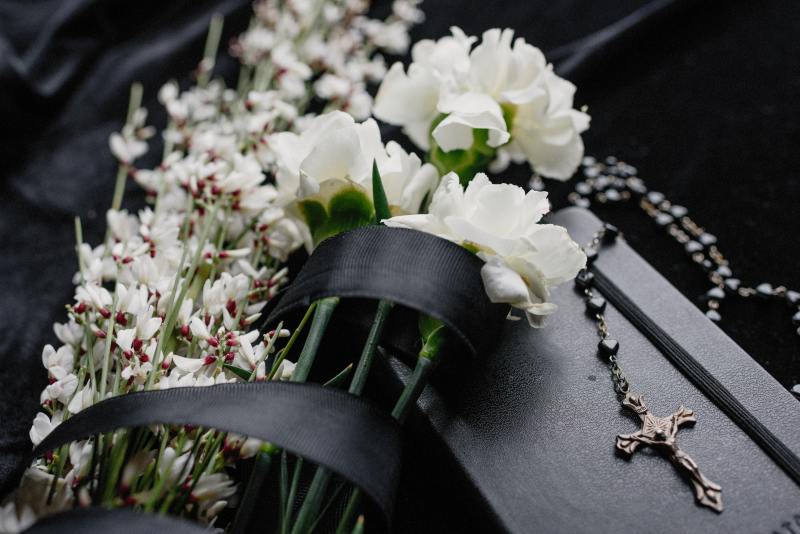
(Photo: Pexel/ Ksenia Chernaya)
After the burial of Pope Benedict at St. Peter's Square, some mourners screamed 'Santo Subito!' which means 'make him a saint now!' It is a similar sentence that was used at the funeral of Pope John Paul II in 2005 but by a much larger number of people. Since Benedict's passing, many prominent figures have voiced their admiration for him.
On the other hand, there have also been voices of criticism, particularly those of victims of sexual abuse at the hands of clergy, who have accused him of attempting to defend the church at any cost. Only around a third of all pontiffs have been canonized during the church's 2,000-year history.
However, only three of the five most recent popes have been elevated to the status of saints. Benedict's death on Saturday, Dec. 31, ended a decade of the former and current popes living side-by-side in the Vatican. It was the first time in more than two centuries that a pope presided over the funeral of his predecessor.
Pope Benedict's Funeral
The Jerusalem Post reported that Benedict would be laid to rest in the underground caves of the Vatican according to his request. He would be placed in the niche that previously housed Pope John XXIII and Pope John Paul II before their remains were moved to more conspicuous places in the basilica.
Accordingly, Benedict passed away on Saturday at 95 in a monastery inside the Vatican gardens. He moved there after becoming the first pontiff in 600 years to resign, paving the way for the election of Pope Francis, who has shown to be a more progressive and hands-on leader.
The viewing of the body continued until Wednesday evening, Jan. 4, after which it was placed in a simple casket made of cypress wood and made ready for the funeral. Along with other objects, such as Vatican coins issued during Benedict's reign, a one-page summary of Benedict's papacy was also stuffed into the casket.
In the Latin chronicle of his life and pontificate, three pages long, it is said that he 'fought with force' against sexual abuse committed by clergy members in the Catholic Church. Following the conclusion of the funeral service, the casket will be brought back inside the basilica, where it will first be encased with zinc and then placed inside a second wooden casket.
Since Benedict was no longer serving as head of state at the time of his passing, only two countries, namely his own Germany and Italy, would send official delegations to attend his funeral.
According to Rappler's post, other world leaders, such as the king and queen of Belgium and the queen of Spain, together with approximately 13 other heads of state or governments, are expected to attend the event privately. Most countries were represented at the Holy See by their respective ambassadors.
Also Read: Pope Benedict XVI Laid to Rest in Emotional Funeral Ceremony at St. Peter's Square
Remembering Pope Benedict XVI
Pope Benedict XVI, whose real name is Joseph Alois Ratzinger, was born on Apr. 16, 1927, in Marktl am Inn, Germany. In June 1951, Pope Benedict was ordained to become a priest. In 1953, he completed his studies at the University of Munich and received a Ph.D. in theology and taught until 1969
In addition, he is the author of significant theological books such as Introduction to Christianity, published in 1968, and Dogma and Revelation, published in 1973. Three months after becoming archbishop of Munich and Freising in March 1977, Paul VI made Pope Benedict a cardinal. He became prefect of the Congregation for the Doctrine of the Faith on Nov. 25, 1981, by his friend Pope John Paul II.
The Pope earned his reputation as a hardliner. He was reportedly prefect for the Congregation for the Teaching of the Faith. The Vatican agency preserves Catholic doctrine and evaluates canon law warrants for clergy discipline.
He suppressed liberation theologians like Leonardo Boff and Charles Curran. Even his worst enemies acknowledged his brilliance and ability to approach controversial issues objectively. Furthermore, to his various talents, he was known for his humility and tenderness; he spoke multiple languages and was an exceptional pianist; he particularly liked Mozart's music.
Pope Benedict was part of Pope John Paul's historic outreach to other religions, especially Judaism and Islam, even though he believed the Catholic faith was the only way to salvation. On Apr. 19, 2005, he was elected Pope at the age of 78, making him the oldest newly elected Pope since Clement XII.


















